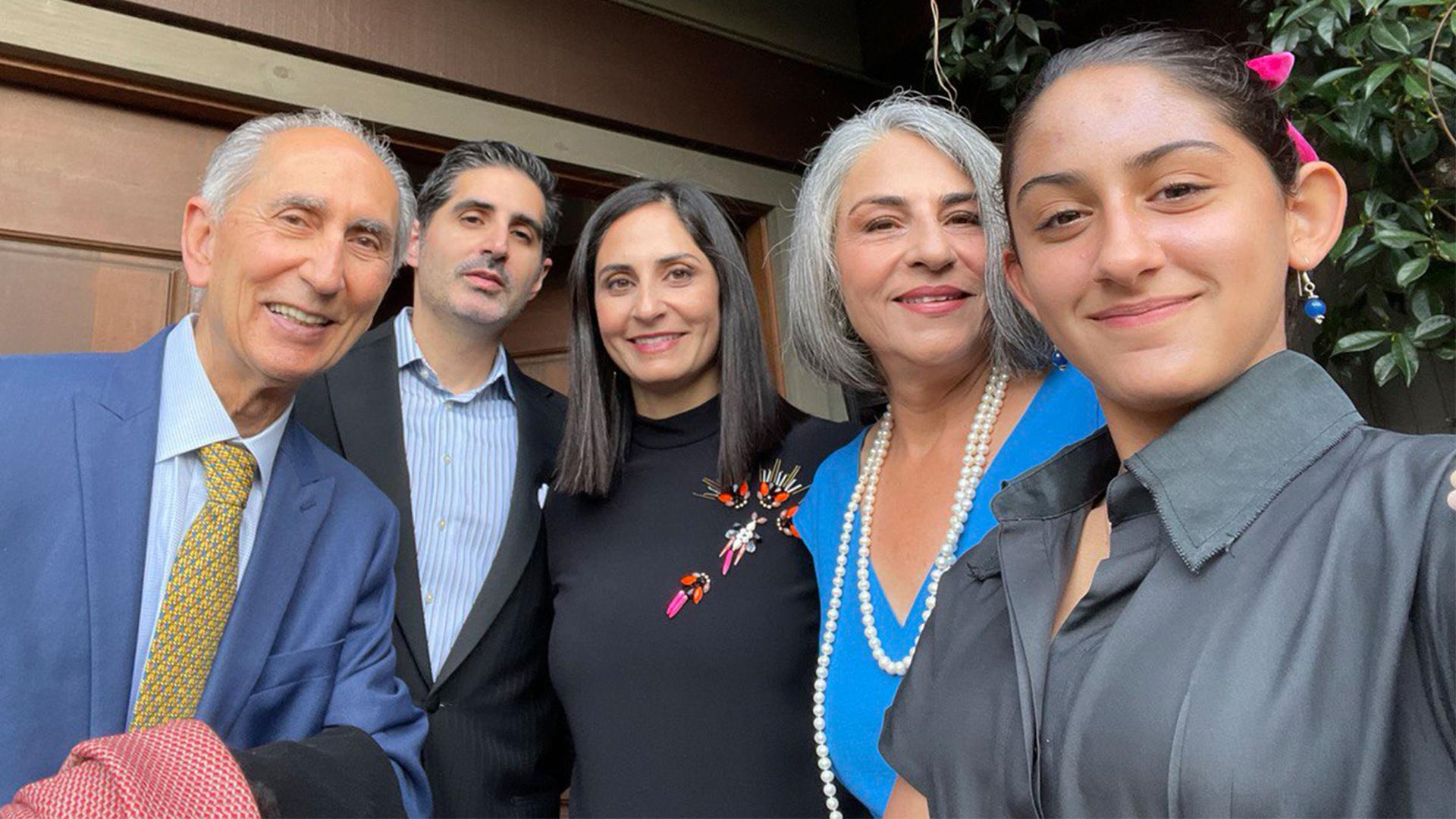The English-speaking world is divided between people who have never given the hyphen a second thought and people who think about it all the time. Pardis Mahdavi is one of the latter. It springs from her own hyphenated life.
Mahdavi is Iranian-American (with a hyphen). In 1979, her parents and grandmother fled the chaos of prerevolutionary Iran for the United States. Mahdavi was born within weeks of their arrival. They settled, uneasily, in Minneapolis.
“My family always had a bag packed,” Mahdavi said. “There was always a suitcase packed in the corner, ready to go back to Iran.”
Meanwhile, Mahdavi’s neighbors and millions of other Americans were watching nightly reports of the Iranian Revolution: 52 American citizens taken hostage in Tehran and held for more than a year.
“My brothers and I were very aware that we were not wanted here in this country.”
“My brothers and I were very aware that we were not wanted here in this country,” she said. “That came to a head when my brother and I came home from school one day and there was a sign and it said, ‘Burn this house, terrorists live here.’”
The family moved to California soon after, but the experience left Mahdavi unsure of whether she was American or Iranian. After graduate school in the United States, she traveled to Iran on a series of research trips. She helped officials there design a new school curriculum on sexual and reproductive rights. But the political winds shifted, and she was no longer welcome.
“I was followed, my phone was tapped, my email was tapped,” Mahdavi said. “Eventually, I was actually arrested.”
She was deported and stripped of her Iranian citizenship. Whether she liked it or not, Mahdavi was no longer Iranian. But she wondered what that now made her: American, as in 100% American, or something else?
“There are a lot of hyphenated people like me. We can create our own homeland inside this tiny orthographic mark.”
“That was really the moment where I realized I have to live in that hyphen because I don’t fit in either homeland,” she said. “There are a lot of hyphenated people like me. We can create our own homeland inside this tiny orthographic mark.”
Mahdavi started to investigate the hyphen and its meaning, starting from its origins in ancient Greece. The grammarian Dionysus Thrax, who came up with it, thought of the hyphen as something that brought words and ideas together. Later, Celtic monks believed the opposite, that the hyphen split up overly long and complex words. And thus began a centurieslong dispute: Does the hyphen unite or divide?
Related: Why US immigration judges are leaving the bench in record numbers
This is more than a grammatical parlor game, at least when it comes to hyphenated Americans. Presidents Theodore Roosevelt and Woodrow Wilson criticized people who identified as Irish-Americans or Italian-Americans. Some groups, notably Japanese Americans, dropped the hyphen when their allegiance was called into question.
And actor John Wayne began the next onslaught on the hyphen. In 1973, he released a spoken word recording called “The Hyphen.” In his analysis, the hyphen had “fanned the flames of hatred” faster than the Nazi swastika or the Soviet hammer and sickle.
The cause was then taken up more recently by former Louisiana governor Bobby Jindal, a Republican, who is the son of Indian immigrants.
“I am tired of the hyphenated Americans,” Jindal said during his brief presidential campaign in 2016. “We’re not African-Americans, we’re not Asian-Americans, we’re not rich Americans, we’re not poor Americans. We’re all Americans.”
Related: Xenophobia ‘takes its toll’ as Trump works to curb immigration
Some on the political left have stopped using the hyphen, too. In fact, it seems to be losing cachet everywhere: The Associated Press, The New York Times and BuzzFeed have all dropped the hyphen in terms like African American and Asian American. Lexicographers have noticed that hyphens have vanished from dictionary spellings of many words — even words that have nothing to do with national allegiances, such as “spinoff” and “nongovernmental.”
But Pardis Mahdavi — who now lives happily hyphenated in Phoenix, where she teaches at Arizona State University — has no intention of dropping her beloved hyphen. For her, the phrase, “living in the hyphen,” helps make sense of a life in America where you simultaneously belong and don’t belong. She further elaborates in her latest book, “Hyphen.”
“People with hyphenated identities say, ‘Actually, no, this is meant to connect, not divide,’” she said. “This is meant to connect, to create something new. To say, ‘Look, I’m not a type of American that is Japanese or a type of American that is Chinese. But I am Chinese-American. I am African-American. I am Iranian-American. I am a different type of American.’”
For more on Pardis Mahdavi’s exploration of the hyphen, listen to this episode of Subtitle, a podcast about languages and the people who speak them. Subtitle is supported by a major grant from the National Endowment for the Humanities.
